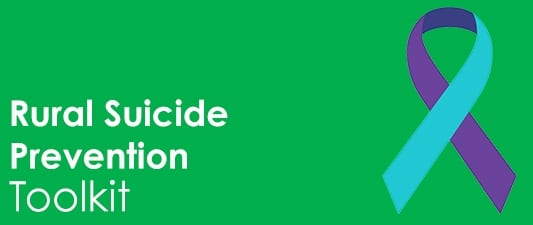The Rural Health Information Hub has created a Rural Suicide Prevention Toolkit to help rural communities create and implement effective suicide-prevention programs.

The toolkit is undoubtedly a welcome resource, since rural residents tend to have a higher risk of suicide. The toolkit has six modules:
- An overview of suicide rates in the U.S.; risk factors for suicide; the costs of suicide to families, communities, and more; and the unique challenges rural communities face.
- Seven program models designed to address and prevent suicide.
- Examples of promising suicide prevention programs in different areas.
- Implementation strategies for rural prevention programs, and factors to consider when developing one.
- Tools that can help in evaluating a suicide prevention program.
- Resources and strategies to help create a sustainable program, including funding, workforce retention, strategic vision, and program adaptability.
- How to share your program’s results so others can learn from it.
The toolkit was produced by the University of Minnesota Rural Health Research Center in collaboration with the NORC Walsh Center for Rural Health Analysis and the Rural Health Information Hub.
(This report first ran on The Rural Blog, a digest published by the Institute for Rural Journalism and Community Issues at the University of Kentucky.)
The Rural Blog is a publication of the Institute for Rural Journalism and Community Issues based at the University of Kentucky.






